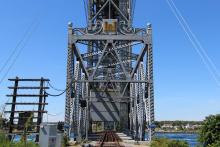By
on

Rant Warning...
Every state has at least one organization, often calling itself a think tank, that is funded by large corporations to advance their narrow interests, often at the expense of local businesses and the larger public.
Many call these "coin operated" think tanks because they take whatever positions their funders want them to take. Or, a more charitable explanation is that some massive corporations are simply channeling money to those few people who honestly believe that we would all be better off if BP or Comcast or Goldman Sachs had no regulations to worry about.
In Minnesota, one of these is called the "Freedom Foundation" of Minnesota. I tend to ignore them for a variety of reasons.
- There just isn't enough time.
- They are really, really ignorant. Their papers and posts are so filled with errors in basic fact, it would take a LOT of time to correct them - which brings me back to point 1. (Nonetheless, they are influential because the lobbyists of the companies that fund them distribute their propaganda throughout the capitol that they appear to actually live in.)
- Mentioning them can legitimize them.
Geoterm







